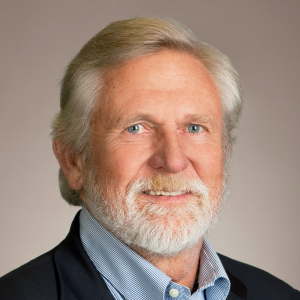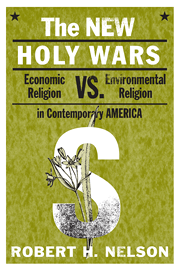On May 1 the Ohio Court of Appeals ruled against a Cleveland pilot program offering government vouchers to 2,000 students to attend private elementary schools. The court cited separation of church and state. Four out of every five of the students were using their vouchers at Catholic schools. Thus, according to the court’s misguided ruling, government money was subsidizing religious schools.
The problem is that many public schools have been teaching religion for years without calling it that. In their recent book, Facts Not Fear, Michael Sanera and Jane Shaw studied 100 children’s books on the environment being used in schools. What did they discover? That many of the books advocate a kind of salvation through environmental activism.
Is this religion? Of course it is. Roger Kennedy, until recently the director of the National Park Service, has said, “wilderness is a religious subject” that should be “part of our religious life.” John Muir, the founder of the Sierra Club, believed that in the wilderness people find “terrestrial manifestations of God.” Interior Secretary Bruce Babbitt has been making speeches around the U.S. saying that the current Endangered Species Act is a biblical imperative: “In Genesis, Noah was commanded to take into the ark two-by-two and seven-by-seven every living thing in creation,” and modern society must now accept the same environmental obligation.
Environmentalists warn that human beings are committing sins against the earth and that global warming and other environmental calamities will soon descend upon us, yielding worldwide flooding, famine, pestilence, and other destructive events. The environmental Jehovah will strike us down if we fail to heed his injunctions as revealed by his prophets on earth.
This isn’t religion?
In April the report of the Independent Commission on Environmental Education, including leading experts in environmental fields, found that environmental texts often offered “apocalyptic visions” that had little or no scientific grounding. This is from the textbook Environmental Science, published by the Wadsworth Publishing Co.: “Some see risk analysis as a useful and much needed tool. Others see it as a way to justify premeditated murder in the name of profit.”
The environmental gospel teaches that excessive consumption is bad for the soul, that a new reverence for the earth is required and that the people of the world must repent their wasteful ways. Recycling has become an environmental religious ritual, analogous to keeping kosher kitchens or eating fish on Friday.
Whether values are taught in the name of old or new religions, they are still religious values, not facts. If we are serious about not subsidizing religious teachings, how can we let the public schools preach a more modern form of faith?
Some parents may want their children to be instructed in an environmental ethic that instills a sense of religious stewardship with respect to the earth. Fine. But if public money can be spent on this, why not on Catholic or Jewish or, for that matter, Muslim schools?
The Christian right and other religious groups complain that under current court rulings, like the recent Ohio one, they are being discriminated against. Indeed they are. Why should separation of church and state apply to historic Jewish and Christian teachings but not to education in newer and more modern gospels? The use of public schools to require that students learn an environmental state religion is as clear an infringement on religious liberty as requiring that they learn Catholic doctrine.
Separation of church and state has for too long been a cover for the public school lobby, which wants to stop vouchers at any cost. For many years now the trend of Supreme Court rulings on separation of church and state has tortured the plain meaning of the original constitutional requirement. For the government to be neutral, it is simply necessary that funds be available on equal terms to religious groups of all kinds.
Yes, even schools for earth-worshippers.












